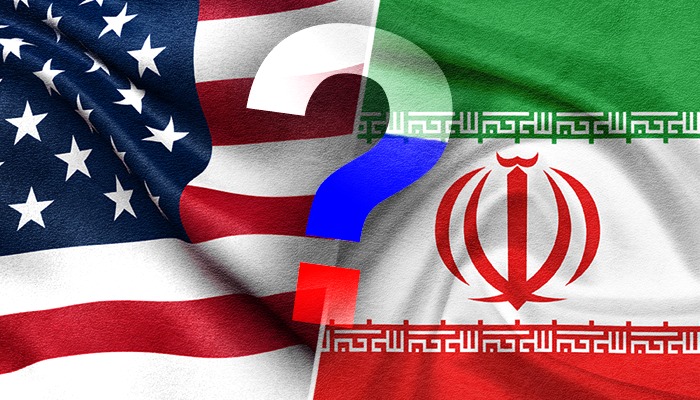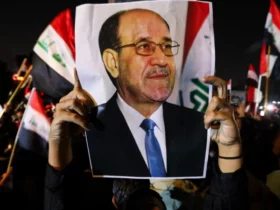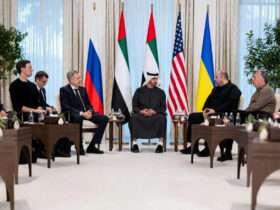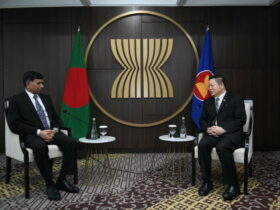Interview with Gürlan Demir, Tehran correspondent of Turkish TV channel Ulusal Kanal.
Interview with Gürlan Demir, Tehran correspondent of Turkish TV channel Ulusal Kanal.
Negotiations between Iran and the US over a possible “nuclear deal” are ongoing, but with no clear end in sight. There is serious discussion about whether military options might come into play. And of course, Israel remains as “unofficial” participant of negotiations.
How does Iran view the negotiations and possible developments? What plans is it making for the cases of positive and negative outcomes? How will its relations with regional countries, especially Saudi Arabia, evolve? Where does the Palestinian issue stand in all of this? And perhaps most importantly, what do the Iranian people feel and think?
We posed these questions to Gürkan Demir, journalist and Tehran correspondent for Türkiye’s Ulusal Kanal.
“High-risk diplomatic engagement”
Does Iran believe a nuclear deal is possible? If not, what developments does Iran foresee?
The negotiation process began and continues on a very fragile footing. I can it as a “high-risk diplomatic engagement”. Washington insists, “Iran must not have nuclear weapons” while Iran maintains, “nuclear weapons are not part of our military doctrine. Our program is peaceful, and we are ready to prove it”. If the US truly only cares about this issue, then there should be no obstacle to reaching a deal. But Washington must clarify its true intention.
Looking more closely at the negotiation process, before the talks began, the US announced that the negotiations would also cover Iran’s missile program and its support for the “Axis of Resistance” (groups like Hamas, Hezbollah, and forces in Yemen), in addition to the nuclear program and sanctions. However, after three rounds of talks, only the nuclear issue and sanctions have been discussed between the two countries. Tehran views this as a positive sign and has even stated that if other topics are brought up, they will withdraw from the negotiations. So, as long as discussions stay focused on the nuclear file and lifting sanctions, the chances of reaching an agreement remain somewhat high.
Red lines
Of course, there are red lines. Particularly regarding enriched uranium, Washington doesn’t have a clear policy. Some American officials say enrichment should not be more than 3.67%, while others have suggested Iran should not enrich uranium at all and should instead import it. However, Iran sees uranium enrichment as a sovereign right. The 2015 nuclear deal had provided Iran enrichment up to a certain level. So we can say the idea of importing enriched uranium is unlikely to be accepted by Tehran.
Iran is approaching the process with “cautious optimism”, not entirely pessimistic, but not fully hopeful either, despite its deep-rooted distrust of the US. One might say, learning from past experience, the administration of Masoud Pezeshkian is putting Donald Trump’s administration to the test. If Washington fails that test, Tehran will move forward on its own path, focusing not on lifting sanctions, but on neutralizing them.
Is military action possible?
Donald Trump stated that if no agreement is reached, the US might consider military action against Iran in coordination with Israel. How realistic is this? If so, what kind of military action could this be? Do the US and Israel differ in their policies toward Iran? Where do they align, and where do they diverge?
It seems unlikely that Israel alone would launch a attack on Iran. Tel Aviv lacks the capability to annihilate Iran’s highly fortified nuclear facilities. That’s why Israel wants the US to provide bunker-busting bombs and mid-air refueling support for Israeli aircraft. On April 7, Israeli Prime Minister Benjamin Netanyahu visited the White House for that plan, but he couldn’t get the green light from Trump.
Where the US and Israel diverge
There are a few reasons for this. First, there are divisions within the Trump administration itself. Vice President, the Secretary of Defense, and Middle East Special Envoy (who also leads negotiations with Iran), Mr. Witkoff, are reportedly in favor of giving diplomacy a chance. On the other hand, Secretary of State Rubio and the now-former National Security Advisor (who stepped down on April 1) is doubtful toward the negotiations.
Second, while Trump has declared that a military option is on the table if no deal is reached, he considers such a move contrary to US’s interests. Such an attack would undermine his claim to be a global peacemaker.
Thirdly, Iran is not Afghanistan or Iraq. It has advanced military capabilities and technology. Over 10 US military bases, approximately 50,000 U.S. troops, and warships in the Gulf and the Arabian Sea are all within range of Iranian missiles. A military conflict would bring both human and financial losses, which Trump wants to avoid. This is why diplomacy, being less costly, emerges as the more appealing for the path that Trump envisions for the US.
Trump’s turn toward negotiations has frustrated Tel Aviv. Israel seeks to derail the process through sabotage, assassinations, and lobbying in Washington and aims to pressure Trump and his team. So, Trump’s references to “military options” may be seen to placate Netanyahu and the pro-Israel lobby in the US.
And one last point. Trump was the one who unilaterally withdrew from the 2015 nuclear deal. He now wants to have a “success story” with an agreement. If Netanyahu continues trying to dictate what Trump should do, it could backfire and raise tensions between Washington and Tel Aviv.
Are the Abraham Accords still valid?
Trump suggested that Saudi Arabia may soon take significant steps to normalize relations with Israel and implement the Abraham Accords. In March 2023, Iran and Saudi Arabia reestablished diplomatic ties. If Saudi Arabia does what Trump suggests, what would be the impact on Iran-Saudi relations?
Any move by Riyadh to join the Abraham Accords would not be welcomed in Tehran. “Normalization” with Israel would shift the current rapprochement back to tension.
That said, the prospect of Saudi participation in the Abraham Accords appears to have been shelved since the October 7 “Al-Aqsa Flood” operation. As long as the war in Gaza continues, Israel does not withdraw, and humanitarian aid routes remain blocked, I think Saudi Arabia would not revisit the Abraham Accords. Also, in recent years, Saudi Arabia has been distancing itself from Atlanticist policies, leaning instead toward closer ties with the Asian bloc. Rapprochement with Iran and starting trading oil in yuan instead of dollars with China are indicators of this.
Saudi Arabia between the US and China
Yet, Saudi Arabia is also looking to purchase a nuclear program from the US. Probably Washington would dangle that to Riyadh for the Abraham Accords. However, Riyadh holds a significant card: if the US refuses, it could turn to China. So, I believe Trump is unlikely to achieve a positive outcome during his upcoming visit to Saudi Arabia.
Here, an important development that shouldn’t be overlooked is the visit of Saudi Arabia’s defense minister to Tehran on April 17. The highlight of that visit was the delivery of a personal letter from the Saudi King to the leader of Iran Islamic Revolution, Ayatollah Seyyed Ali Khamenei.
Does Iran’s stance on Gaza and Palestine have any influence on the negotiations?
Iran, along with Yemen, is one of the two countries that directly supports the Palestinian people through military means. It would continue to fully back Palestinian resistance groups. Pulling back now would leave Iran and other regional countries more vulnerable to Israel’s expansionist policies. In fact, considering that Hamas political leader Ismail Haniyeh was martyred in Tehran, the Palestinian issue is intertwined with Iran’s own fate. As I mentioned in the first question, Iran is not open to negotiating its support for the resistance front.
“Achieving tangible results without yielding to Washington”
How does the Iranian people view all this? Voter turnout was notably low in the last elections.
The US has failed to achieve its goals through political pressure, economic sanctions and military threats. Still, the resulting economic hardships are felt deeply by the Iranian people. Given its wealth in oil and gas, sanctions have created major economic challenges. When Iran sells oil to second and third countries, the US blocks access to the payments to Iran.
The public expects that these economic problems will be resolved, either through negotiations with the US or through alternative methods. Still, note that chants of “Death to America” still echo in public squares and Iranians want their government to achieve tangible results without bowing to Washington. They’re well aware that the US is the main reason of their current economic problems.
To counter the impact of sanctions of last 45 years, Iran continues to pursue economic partnerships, with regional countries, with Latin America and China. The Iranian government is also working closely with multilateral organizations such as the Shanghai Cooperation Organization and BRICS to raise the public’s prosperity.
















Leave a Reply